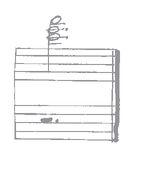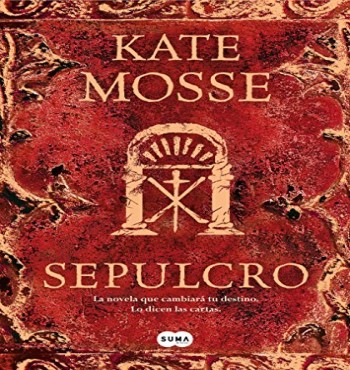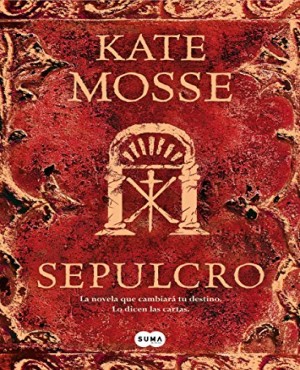
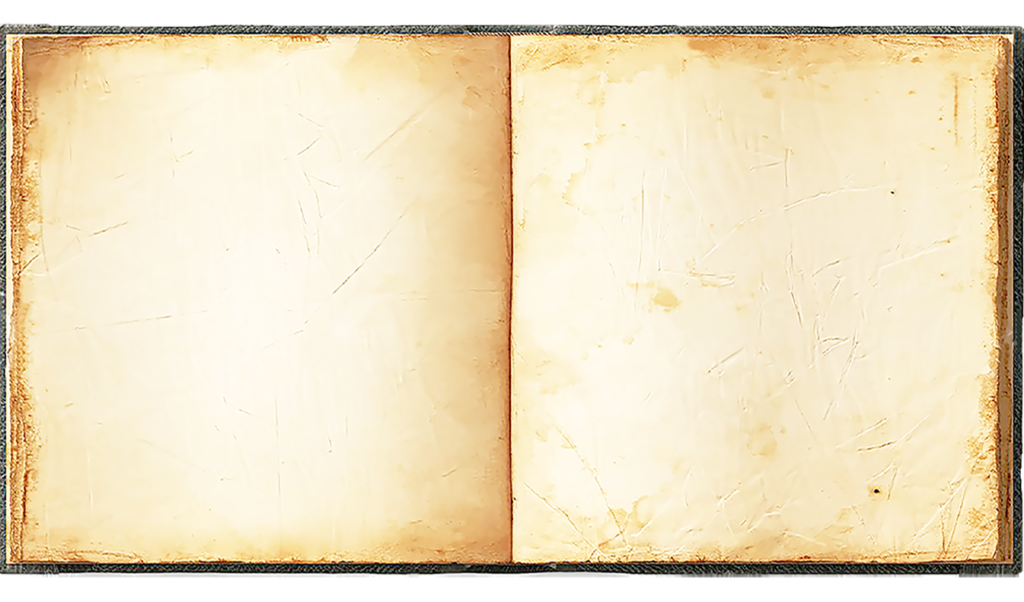
In 1891, young Léonie Vernier and her brother Anatole arrive in the beautiful town of Rennes-les-Bains, in southwest France. They’ve come at the invitation of their widowed aunt, whose mountain estate, Domain de la Cade, is famous in the region. But it soon becomes clear that their aunt Isolde-and the Domain-are not what Léonie had imagined. The villagers claim that Isolde’s late husband died after summoning a demon from the old Visigoth sepulchre high on the mountainside. A book from the Domain’s cavernous library describes the strange tarot pack that mysteriously disappeared following the uncle’s death. But while Léonie delves deeper into the ancient mysteries of the Domain, a different evil stalks her family-one which may explain why Léonie and Anatole were invited to the sinister Domain in the first place.
Table of Contents
Dedication
for that first piano
And, as ever, my beloved Greg –
for all things present, past and yet to come
Epigraph
L’âme d’autrui est une forêt obscure où il faut marcher
avec précaution.
The soul of another is a dark forest in which one must
tread carefully.
Letter, 1891
Claude Debussy
The true Tarot is symbolism; it speaks no other language and offers no other signs.
The Pictorial Key to the Tarot, 1910
Arthur Edward Waite
PART I
Paris September 1891

CHAPTER 1
PARIS
The warning bell was ringing. Two minutes only until curtain up.

CHAPTER 2

CHAPTER 3

CHAPTER 4
CHAPTER 5
CHAPTER 6
CHAPTER 7

CHAPTER 8
PART II
Paris October 2007

CHAPTER 9
RENNES-LES-BAINS
11190
Set in delightful wooded parkland above the picturesque town of Rennes-les-Bains in the beautiful Languedoc, the Hôtel Domaine de la Cade is the epitome of nineteenth-century grandeur and elegance, but with all the comfort and leisure facilities expected by the discriminating twenty-first-century visitor. The hotel is situated on the location of the original maison de maître, which was partially destroyed by fire in 1897. Run as a hotel since the 1950s, it reopened after a major refurbishment under new management in 2004 and is now recognised as one of the premier hotels in south-west France.
The same information was repeated over in French.

CHAPTER 10
CHAPTER 11
On Sunday morning, Meredith headed for the Opéra de Paris at the Palais Garnier.
Outside, the sun was now hot.

CHAPTER 12
When Meredith woke in the morning, her night-time nerves had evaporated. She was looking forward to getting out of town. Whatever she achieved, one way or the other, a few days R&R in the mountains was just what she needed.
Many hundreds of miles to the south, in the beech woods above Rennes-les-Bains, a sudden breath of wind lifted the copper leaves on the branches of the ancient trees. The sound of a long-dead sigh, like fingers moving lightly over a keyboard.
CHAPTER 13
‘Oui, Abbé, et merci à vous pour votre gentillesse. A tout à l’heure.’

CHAPTER 14
CHAPTER 15
CHAPTER 16
CHAPTER 17

PART III
Rennes-les-Bains September 1891

CHAPTER 18
PARIS

CHAPTER 19
COUIZA SUNDAY 20TH SEPTEMBER
Léonie had enjoyed their three-day journey through France. As soon as the Express had cleared the dismal Parisian banlieue, Anatole had recovered his good spirits and kept her amused with stories, playing hands of cards, discussing how they would spend their time in the mountains.
She was jolted awake by the squeal of the brakes.

CHAPTER 20

CHAPTER 21
PARIS
Hundreds of miles to the north, Paris was becalmed. After the bustle of a busy morning of commerce, the afternoon air was choked with dust and the smells of rotten fruit and vegetables. The ostlers, the traders of the 8th arrondissement had gone. The milk carts, the barrows and the beggars had moved on, leaving behind the detritus, the dregs of another day.

CHAPTER 22
RENNES-LES-BAINS

CHAPTER 23
RENNES-LES-BAINS
The horses clattered over a low bridge and slowed to a trot. Ahead, on the bend in the road, Léonie had her first glimpse of Rennes-les-Bains. She could see a white three-storey building with a sign announcing itself to be the Hôtel de la Reine. Beside it was a cluster of rather forbidding, unadorned buildings that she presumed made up the establishment of the thermal spa.
CHAPTER 24

CHAPTER 25

CHAPTER 26
PARIS
The fashionable streets and boulevards were smothered in a thick brown twilight. The quartiers perdus, the down-at-heel neighbourhoods, the alleyways and labyrinthine network of apartments and slums, also gasped for breath in the polluted dusk.

CHAPTER 27
DOMAINE DE LA CADE
PART IV
Rennes-les-Bains October 2007

CHAPTER 28
RENNES-LES-BAINS

CHAPTER 29

CHAPTER 30
The Bousquet Tarot is a rare deck, not used much outside France. The earliest examples of this deck were printed by the Bousquet publishing company, located outside Rennes-les-Bains in south-west France, in the late 1890s.
Beside her on the desk, the phone rang. Meredith jumped, the sound raucously loud in the silence of the room. Without taking her eyes from the screen, Meredith flung out her hand and grabbed the receiver.

CHAPTER 31

CHAPTER 32

CHAPTER 33

PART V
Domaine de la Cade September 1891

CHAPTER 34

CHAPTER 35
PARIS

CHAPTER 36
DOMAINE DE LA CADE
Upon the scrubbed flagstones within the sepulchre was the square, painted in black by my very hand earlier that day and which, now, seemed to give a faint glowing light.
Léonie let out a low whistle. She turned the page. There was no more.

CHAPTER 37
PARIS

CHAPTER 38
RENNES-LES-BAINS
Léonie had barely departed the library when she was accosted by the maid, Marieta, in the hall. She thrust the book behind her back.
The gig set them down in the Place du Pérou.
CHAPTER 39
An hour later, dressed in her new worsted jacket, sturdy walking boots and with her hat perched on her head, Léonie sneaked out onto the terrace.
Aïci lo tems s’en
Va res l’Eternitat.
Léonie read the words twice aloud, rolling the strange sounds over in her mouth. She pulled her all-weather pencil from her pocket and scribbled them down on a scrap of paper.

CHAPTER 40
CHAPTER 41
It was only some time later, when the bell for supper had rung, that Léonie paused to contemplate her reflection in the looking glass.
There was a rushing of air and the sensation that I was not alone. Now I was certain that the sepulchre was full of beings. Spirits, I cannot say they were human. All natural rules were vanquished. The entities were all around. My self and my other selves, both past and yet to come . . . It seemed to me they flew and swept through the air, so that I was aware always of their fleeting presence . . . Especially in the air above my head there seemed ceaseless movement, accompanied by a cacophony of whispering and sighing and weeping.
Night slowly fell over the Domaine de la Cade, bringing with it a sense of anticipation, a sense of waiting and watching.

CHAPTER 42
Saturday 26th September, the day of the dinner party, dawned bright and clear.
Marieta knocked upon her door at seven o’clock.
A volley of noise hit Léonie when she emerged from her room and stopped her in her tracks. She peeped over the balcony to the hall below. The servants were dressed in hired livery for the evening and looked very smart. It added to the sense of occasion. She fixed a dazzling smile on to her face, made sure that her dress was quite perfect, and then, with butterflies in the pit of her stomach, went down to the join the party.
The conversation prospered until the sound of the gong being struck called the party in to dinner.
CHAPTER 43

PART VI
Rennes-le-Château October 2007

CHAPTER 44
CHAPTER 45

CHAPTER 46
Aïci lo tems s’en
Va res l’Eternitat.

CHAPTER 47
DOMAINE DE LA CADE

CHAPTER 48
RENNES-LE-CHÂTEAU
The first thing that struck Meredith as they walked into the church was how very small it was, like it had been built on a three-quarter scale. The perspectives seemed all wrong.
They didn’t talk much as they walked back up to the car. The gravel on the path crunched loudly under their feet, like tightly packed snow. It had gotten cooler since they’d been inside and the air was heavy with the smell of bonfires.

CHAPTER 49
On the journey back from Rennes-le-Château, Meredith started to feel excited. Before, Laura’s gift had felt a burden. Now, the Tarot cards seemed full of intriguing possibilities.

CHAPTER 50
PART VII
Carcassonne September-October 1891

CHAPTER 51
SUNDAY 27TH SEPTEMBER 1891
Later that afternoon, Léonie accepted Isolde’s invitation to walk in the gardens. She needed to clear her head and, feeling slightly better, was glad of the opportunity to stretch her legs. The air was still and warm, the afternoon sun gentle upon her cheeks. Quickly, she felt her spirits restored.

CHAPTER 52
CARCASSONNE
MONDAY 28TH SEPTEMBER
The porter opened the door to the first-class carriage and Victor Constant stepped down to the station platform at Carcassonne.

CHAPTER 53
DOMAINE DE LA CADE
During these peaceful early weeks of October, the storms forecast failed to materialise. The sun shone brightly, but not too fiercely. There was a temperate, but moderate, breeze, nothing to disrupt the tranquillity of their days. It was a pleasant time, with little to disturb the surface of the domestic and self-contained life they were constructing for themselves at the Domaine de la Cade.
They passed an agreeable morning in the town. They ran into Charles Denarnaud and took coffee with him on the terrace of the Hôtel de la Reine. Despite his bonhomie and cordiality, Léonie still could not bring herself to like him, and from Isolde’s manner and reserve, she realised her aunt felt similarly.
When they arrived back at the Domaine de la Cade some half an hour later, Léonie ran to the corner beneath the stairs and placed the sheet of music in the piano stool, beneath a moth-eaten copy of Bach’s Well-Tempered Clavier. Now, it seemed significant to her that in all that time she had possessed it, she had not ever actually tried to play it.

CHAPTER 54

CHAPTER 55

CHAPTER 56
CARCASSONNE
THURSDAY 22ND OCTOBER
Despite their early start, the blustery weather conditions resulted in the train arriving more than an hour late into Carcassonne.

CHAPTER 57

CHAPTER 58
CHAPTER 59
By the time Léonie reached the Place Saint-Gimer, she was drenched.
Aquèla Trivala
Ah qu’un polit quartier
Es plen de gitanòs.
The words floated across the church to the nave where Léonie and Victor were standing.

CHAPTER 60
Constant watched her go, seeing from her posture, her pretty step, the way she held her head high, that she was more than aware of his eyes upon her retreating back.
CHAPTER 61
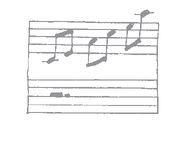
CHAPTER 62
The traffic through the town was slow in the drenched and sodden streets and they made the train with only moments to spare, rushing along the slippery platform to the first-class carriages at the front. The guard held the door for them and ushered them on. The door slammed shut. Isolde and Marieta were settled in the corner.
On the opposite platform, a matter of minutes later, Inspector Thouron and two Parisian officers disembarked the train from Marseille. They were some two hours late, having been held up by a landslide brought on by heavy rain on the track outside Béziers.
The storm hit the Haute Vallée at a little after eight o’clock in the evening, just as the train carrying Léonie, Anatole and Isolde south approached the station at Limoux.
